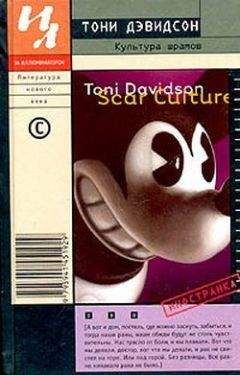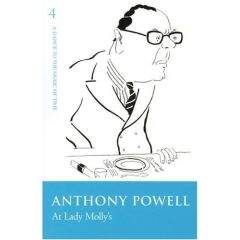Anthony Powell - A Buyers Market
“We don’t much like each other, do we?” she said at length.
I replied, rather lamely, that, even supposing some such mutual hostility to exist between us, there was no good reason why anything of the sort should continue; and it was true that I was conscious, that evening, of finding her notably more engaging than upon earlier meetings, comparatively amicable though some of these had been.
“Have you been seeing much of your friend Widmerpool lately?” she asked.
“I’ve just had a letter from his mother inviting me to dine with them next week.”
She laughed a lot at this news.
“I expect you heard he forked out,” she said.
“I gathered something of the sort.”
“Did he tell you himself?”
“In a manner of speaking.”
“Was he fed up about it?”
“He was, rather.”
She laughed again, though less noisily. I wondered what unthinkable passages had passed between them. It was evident that any interest, emotional or venal, invested by her in Widmerpool was now expended. There was something odious about her that made her, at the same time — I had to face this — an object of desire.
“After all, somebody had to cough up,” she said, rather defensively.
“So I suppose.”
“In the end he went off in a huff.”
This statement seemed explicit enough. There could be little doubt now that she had made a fool of Widmerpool. I felt, at that moment, she was correct in assuming that I did not like her. She was at once aware of this disapproval.
“Why are you so stuck up?” she asked, truculently.
“I’m just made that way.”
“You ought to fight it.”
“I can’t see why.”
As far as I can remember, she went on to speak of the “social revolution,” a subject that occupied a great deal of her conversation and Cragg’s, too, while even Mr. Deacon could not hold his own in such discussions, though representing a wilder and less regimented point of view than the other two. I was relieved of the necessity of expressing my own opinions on this rather large question — rivalling in intensity Lady Anne Stepney’s challenge to the effect that she was herself “on the side of the People” in the French Revolution — by the sudden appearance of Howard Craggs himself in the neighbourhood of the sofa upon which we were sitting; or rather, by then, lying, since for some reason she had put up her feet in such a manner as to require, so it seemed at the time, a change of position on my own part.
“I’m going soon, Gypsy,” said Craggs in his horrible voice, as if speaking lines of recitation for some public performance, an illusion additionally suggested by the name itself. “Should you be requiring a lift?”
“I’m dossing down here,” she said. “But I’ve got one or two things to tell you before you leave.”
“All right, Gypsy, I’ll have one more drink.”
He shambled off. We chatted for a time in a desultory manner — and some sort of an embrace may even have taken place. Soon after that she had said that she must find Craggs and tell him whatever information she wished to pass on. The party was by then drawing to close, or at least changing its venue, with such disastrous consequences for its host. I did not see Mr. Deacon again, after saying good night to him on the pavement: nor Barnby until we met at the cremation.
Most funerals incline, through general atmosphere, to suggest the presence, or at least the more salient characteristics of the deceased; and, in the case of Mr. Deacon, the ceremony’s emphasis was on the disorganised, undisciplined aspect of his character, rather than an echo of the shrewdness and precision that certainly made up the opposite side of his nature. Matters had been arranged by his sister, a small, grey-haired woman, whose appearance hardly at all recalled her brother. There had been some question as to what rites would be appropriate, as Mr. Deacon, latterly agnostic, was believed to have been a Catholic convert for some years as a young man. His sister had ruled out the suggestion of an undenominational service in favour of that of the Church of England. Upon this subject, according to Barnby, she had words with Gypsy Jones; with the result that Gypsy, on anti-religious grounds, had finally refused to attend the funeral. This withdrawal had not worried Mr. Deacon’s sister in the least. Indeed, it may have relieved her, since there was reason to suppose that she suspected, perhaps not unreasonably, the propriety of Gypsy’s connection with the shop. However, Barnby was extremely annoyed.
“Just like the little bitch,” he said.
The weather had turned warmer, almost muggy. About a dozen or fifteen people showed up, most of them belonging to that race of shabby, anonymous mourners who form the bulk of the congregation at all obsequies, whether high or low, rich or poor; almost as if the identical band trooped round unceasingly — like Archie Gilbert to his dances — from interment to interment. Among the leaden-coloured garments of these perpetual attendants upon Death, the lightish suit of a tall young man in spectacles stood out. The face was, for some reason, familiar to me. During the responses his high, quavering voice, repeating the words from the row behind, resounded throughout the little chapel. The sound was churchly, yet not of the Church. Then I remembered that this young man was Max Pilgrim, the “public entertainer”—as Mr. Deacon had called him — with whom the scene had taken place at the end of Mrs. Andriadis’s party. At the close of the service, his willowy figure shuddering slightly as he walked, Pilgrim hurried away. The reasons that had brought him there, however commendable, were only to be conjectured, and could be interpreted according to taste.
“That was a desperate affair,” Barnby had said, as we returned to the shop together.
We climbed the stairs to his studio, where, in preparation for tea, he put a kettle on a gas-ring, and, although it was still warm, lighted the fire; then, changing into overalls, began to prepare a canvas. I lay on the divan. We talked of Mr. Deacon for a time, until conversation fell into more general channels, and Barnby began to discourse on the subject of love.
“Most of us would like to be thought of as the kind of man who has a lot of women,” he said. “But take such fellows as a whole, there are few enough of them one would wish to be at all like.”
“Do you wish to change your identity?”
“Not in the least. Merely to improve my situation in certain specific directions.”
“Which particular Don Juan were you thinking of?”
“Oh, myself, of course,” said Barnby. “Funerals make one’s mind drift in the direction of moral relaxation — though it’s unaccountable to me the way intimate relations between the sexes are always spoken of, and written about, as if of necessity enjoyable or humorous. In practice they might much more truly be described as encompassing the whole range of human feeling from the height of bliss to the depths of misery.”
“Is something on your mind?”
Barnby agreed that this diagnosis was correct. He was about to enter into some further explanation, when as if making a kind of rejoinder to the opinion just expressed, the bell of the telephone began to ring from below. Barnby wiped his hands on a cloth, and went off down the stairs to where the instrument stood on a ledge by the back entrance to the shop. For a time I heard him talking. Then he returned to the room, greatly exhilarated.
“That was Mrs. Wentworth,” he said. “I was about to tell you when the telephone went that she was, in fact, the matter on my mind.”
“Is she coming round here?”
“Better than that. She wants me to go round and see her right away. Do you mind? Finish your tea, of course, and stay here as long as you like.”
He tore off his overalls, and, without attempting to tidy up the material of his painting, was gone almost immediately. I had never before seen him so agitated. The front door slammed. A sense of emptiness fell on the house.
In the circumstances, I could not possibly blame Barnby for absenting himself so precipitately, experiencing at the same time a distinct feeling of being left in a void, not less so on account of the substance of our conversation that had been in this way terminated so abruptly. I poured out another cup of tea, and thought over some of the things he had been saying. I could not help envying the opportune nature, so far as Barnby himself was concerned, of the telephone call, which seemed an outward indication of the manner in which he had — so it seemed to me in those days — imposed his will on the problem at hand.
His life’s unusual variety of form provided a link between what I came, in due course, to recognise as the world of Power, as represented, for example, by the ambitions of Widmerpool and Truscott, and that imaginative life in which a painter’s time is of necessity largely spent: the imagination, in such a case, being primarily of a visual kind. In the conquest of Mrs. Wentworth, however, other spheres — as the figures of Sir Magnus Donners and Prince Theodoric alone sufficiently illustrated — had inevitably to be invaded by him. These hinterlands are frequently, even compulsively, crossed at one time or another by almost all who practise the arts, usually in the need to earn a living; but the arts themselves, so it appeared to me as I considered the matter, by their ultimately sensual essence, are, in the long run, inimical to those who pursue power for its own sake. Conversely, the artist who traffics in power does so, if not necessarily disastrously, at least at considerable risk. I was making preparations to occupy my mind with such thoughts until it was time to proceed to the Widmerpools’, but the room was warm, and, for a time, I dozed.
Nothing in life can ever be entirely divorced from myriad other incidents; and it is remarkable, though no doubt logical, that action, built up from innumerable causes, each in itself allusive and unnoticed more often than not, is almost always provided with an apparently ideal moment for its final expression. So true is this that what has gone before is often, to all intents and purposes, swallowed up by the aptness of the climax, opportunity appearing at least on the surface, to be the sole cause of fulfilment. The circumstances that had brought me to Barnby’s studio supplied a fair example of this complexity of experience. There was, however, more to come.
When I awoke from these sleepy, barely coherent reflections, I decided that I had had enough of the studio, which merely reminded me of Barnby’s apparent successes in a field in which I was then, generally speaking, feeling decidedly unsuccessful. Without any very clear idea of how I would spend my time until dinner, I set off down the stairs, and had just reached the door that led from the back of the shop to the foot of the staircase, when a female voice from the other side shouted: “Who is that?”
My first thought was that Mr. Deacon’s sister had returned to the house. After the cremation, she had announced herself as retiring for the rest of the day to her hotel in Bloomsbury, as she was suffering from a headache.
I supposed now that she had changed her mind, and decided to continue the task of sorting her brother’s belongings, regarding some of which she had already consulted Barnby, since there were books and papers among Mr. Deacon’s property that raised a number of questions of disposal, sometimes of a somewhat delicate kind. She had probably come back to the shop and again sought guidance on some matter. It was to be hoped that the point would not prove an embarrassing one. However, when I said my name, the person beyond the door turned out to be Gypsy.
“Come in for a moment,” she called.
I turned the handle and entered. She was standing behind the screen, in the shadows, at the back of the shop. My first impression was that she had stripped herself stark naked. There was, indeed, good reason for this misapprehension, for a second look showed that she was wearing a kind of bathing-dress, flesh-coloured, and of unusually sparing cut. I must have showed my surprise, because she burst into a paroxysm of laughter.
“I thought you would like to see my dress for the Merry Thought fancy-dress party,” she said. “I am going as Eve,”
She came closer.
“Where is Barnby?” she asked.
“He went out. Didn’t you hear him go? After he spoke on the telephone.”
“I’ve only just come in,” she said. “I wanted to try out my costume on both of you.”
She sounded disappointed at having missed such an opportunity to impress Barnby, though I thought the display would have annoyed rather than amused him; which was no doubt her intention.
“Won’t you be cold?”
“The place is going to be specially heated. Anyway, the weather is mild enough. Still, shut the door. There’s a bit of a draught.”
She sat down on the divan. That part of the shop was shut off from the rest by the screen in such a way as almost to form a cubicle. As Mr. Deacon had described, shawls or draperies of some sort were spread over the surface of this piece of furniture.
“What do you think of the fig leaf?” she asked. “I made it myself.”
I have already spoken of the common ground shared by conflicting emotions. As Barnby had remarked, the funeral had been “hard on the nerves,” and a consciousness of sudden relief from pressure was stimulating. Gypsy, somewhat altering the manner she had adopted on my first arrival in the shop, now managed to look almost prim. She had the air of waiting for something, of asking a question to which she already knew the answer. There was also something more than a little compelling about the atmosphere of the alcove: the operation perhaps of memories left over as a residue from former states of concupiscence, although so fanciful a condition could hardly be offered in extenuation. I asked myself whether this situation, or something not far from it, was not one often premeditated, and, although I still felt one half awake, not to be lightly passed by.
The lack of demur on her part seemed quite in accordance with the almost somnambulistic force that had brought me into that place, and also with the torpid, dream-like atmosphere of the afternoon. At least such protests as she put forward were of so formal and artificial an order that they increased, rather than diminished, the impression that a long-established rite was to be enacted, among Staffordshire figures and papier-mâché trays, with the compelling, detached formality of nightmare. Perhaps some demand, not to be denied in its overpowering force, had occasioned simultaneously both this summons and Mrs. Wentworth’s telephone call; each product of that slow process of building up of events, as already mentioned, coming at last to a head. I was conscious of Gypsy changing her individuality, though at the same time retaining her familiar form: this illusion almost conveying the extraordinary impression that there were really three of us — perhaps even four, because I was aware that alteration had taken place within myself too — of whom the pair of active participants had been, as it were, projected from out of our normally unrelated selves.




